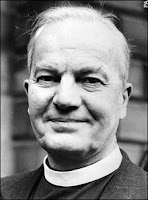Will all be saved?

[Updated 8/27/2019] Do Grace Communion Seminary and Grace Communion International (sponsors of this blog) teach a doctrine of universalism? The answer is no---both are in agreement with the teaching on this topic from Trinitarian theologian Thomas F. (TF) Torrance who notes that, "Whether all men will as a matter of fact be saved or not, in the nature of the case, cannot be known" ( Scottish Journal of Theology 2 [1949] 310-18, quoted in In the End, God, by John A.T. Robinson, Wipf and Stock: 2011, p. 148). Torrance offers two reasons for this assertion: 1) The irrational mystery of evil. 2) The truth that God gives each person the freedom to say "no" to him---potentially forever. Both reasons must be seen in the light of the deeper truth of God's election , which, in Torrance's view TF Torrance expresses the universal action of God's grace in such a way that, far from dissolving the personal elements of choice and decision, it establishes ...

